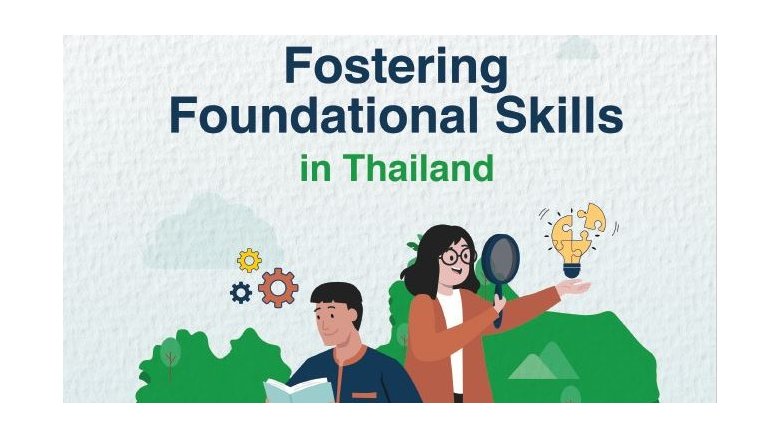
Key findings
Thailand faces a skills crisis, with a very large proportion of youth and adults whose foundational skills are below threshold levels, meaning they cannot perform basic reading and computing tasks and do not show tendencies to engage with others or to be open to explore new ideas.
- Almost two-thirds (64.7%) of youth and adults in Thailand are below the threshold levels of foundational reading literacy, which means they can barely read and understand short texts to solve a simple problem such as following medical instructions.
- Three-quarters (74.1%) of them are also underperformers in foundational digital skills, which means they have difficulty using a pointing device and keyboard on a laptop and cannot perform simple tasks, such as finding the correct price of a product on an online shopping website.
- Moreover, 30.3% of youth and adults report skills below the threshold level of foundational socio-emotional skills, meaning they do not manifest tendencies to take social initiatives or to be enthusiastic, curious, and imaginative.
- The economic costs of having a large proportion of youth and adults with skills below the threshold levels of literacy and digital skills can be considerable, amounting to 3.3 trillion baht, or 20.1 percent of GDP in 2022.
- The skills crisis is concentrated among older adults (those aged 40 and above), younger adults (those below 40) without higher education degrees, and those living in rural areas and in the northern and southern regions of Thailand.
It is encouraging that the Thai government has shown commitment to tackling the skills crisis by not only prioritizing foundational skills in its policy agenda, but also taking concrete actions such as setting standards and mobilizing instruments to facilitate learning. The crisis of foundational skills prevails despite the strong policy intentions and several concrete actions taken by the Thai government. The following recommendations are expected to complement the ongoing efforts and help reduce skills gaps, particularly for the most vulnerable groups.
- Improve strategic guidance for educators to better understand and respond to the skills crisis by: demonstrating the nature of skills gaps using skills supply diagnostics; preparing and disseminating evidence-based programs; and setting a frame of reference using detailed and developmentally consistent standards and a foundational skills framework that all stakeholders can adhere to.
- Enhance efficiency and inclusiveness of decentralized learning delivery by: establishing a coordinating institution at the provincial level; ensuring sufficient investments in skills development are made during early childhood development; and leveraging the strengths of the private sector.
- Deploy innovative instruments to help improve teaching and learning by: mobilizing classroom observation tools to improve teachers’ pedagogical skills and introducing individual learning accounts (ILAs) that enable vulnerable groups to upskill and reskill irrespective of their employment status.
- Strengthen quality assurance by: ensuring all teachers invest in their capacity to foster learners’ foundational skills through professional development programs; and requiring that their capacity is well developed through their recertification process.
- Leverage the powers of information campaigns by: deploying the right messenger (for example, local champions or experts) to communicate the right messages (for example, income earning benefits of investing in foundational literacy, digital, and socioemotional skills) relevant for the target groups.